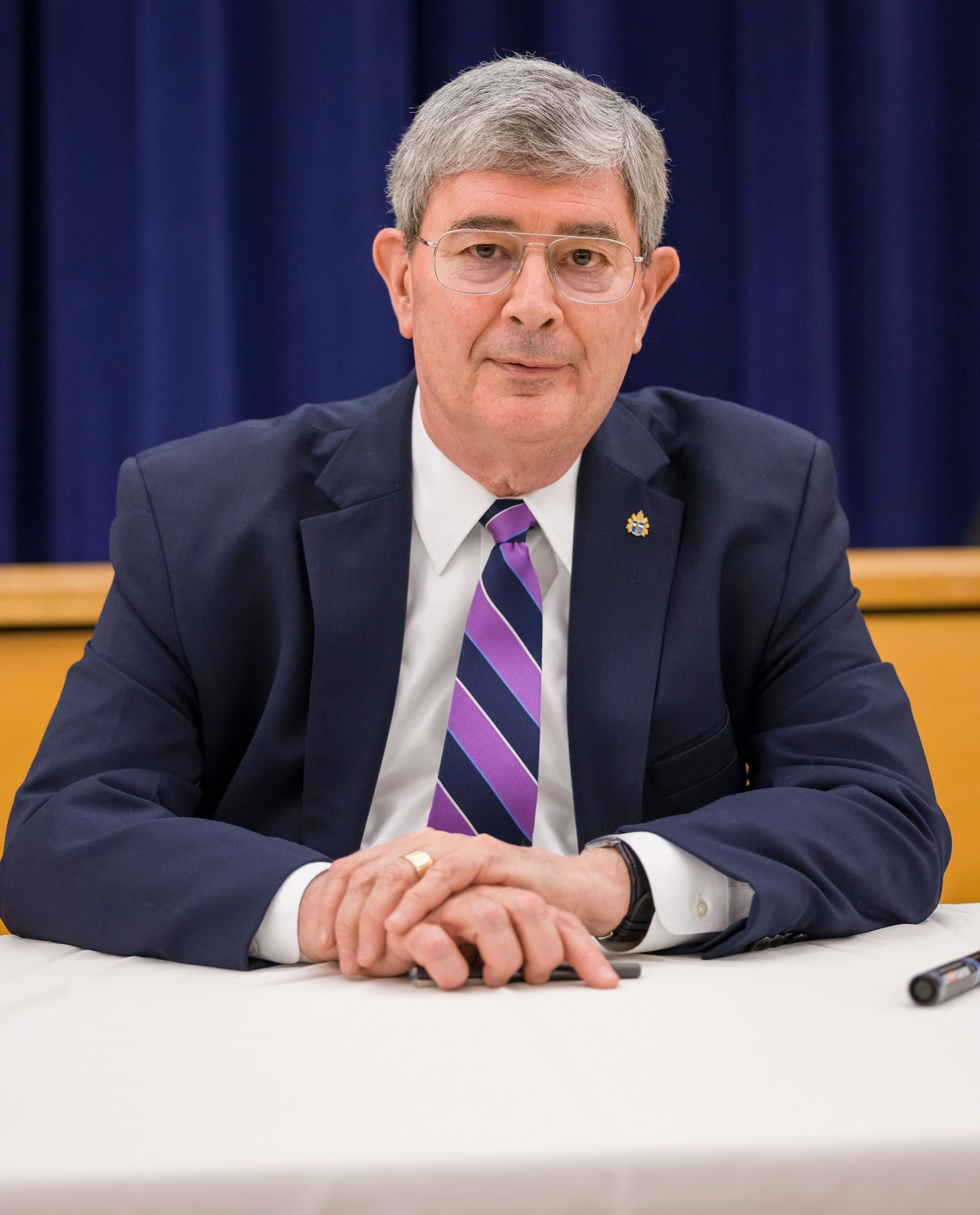In the course of an insightful essay on Vladimir Putin’s challenge to civilization, Italian historian Roberto de Mattei observed that, amidst the general decline of the West, “the Church . . . appears as a wasteland.” That certainly seems to be the case with institutional Catholicism in Germany and Belgium, where bishops violate the profession of faith they made before their episcopal ordination by declaring that the Church has been teaching falsely on certain moral matters, and by suggesting that settled doctrinal questions are not settled. And it’s not hard to see how Rome-based de Mattei could feel as if he were living in an ecclesiastical desert: The priest in charge of catechesis in the Diocese of Rome, Fr. Andrea Camillini, recently said, “It’s time to give up the delusion of omnipotence, of evangelizing Rome, and abandon the idea of making Rome into a Christian city. It’s no longer our objective and it never was.”
But what about the Church in these United States? To be sure, ours is a chiaroscuro landscape, with both shadows and light. But a wasteland? I think not.
Consider the following.
Seminaries. In the main, U.S. seminaries today are in better shape than they’ve ever been. The seminary reforms mandated by John Paul II in the 1987 apostolic exhortation Pastores Dabo Vobis have taken hold, and while there is still hard work left to be done—not least in inculcating the art of preaching—seminary rectors and formators in many North Atlantic countries marvel at what they see here and hope to imitate it.
Catholic Colleges and Universities. Some of these are, indeed, Catholic wastelands. In others, there is a continual battle over sustaining a vibrant Catholic identity that prepares young men and women for missionary discipleship. Still others, however, are set firmly on the path of fostering intellectual rigor in an environment that supports ongoing and ever-deeper conversion to Christ. To name but a few, in alphabetical order: Thomas Aquinas College, Belmont Abbey College, Benedictine College, the Catholic University of America, Christendom College, the University of Dallas, the Franciscan University of Steubenville, the University of Mary.
Catholic Campus Ministry. We are in a Golden Age of Catholic campus ministry, evident in what some might regard as surprising places like Texas A&M University and North Dakota State University. The Fellowship of Catholic University Students (FOCUS), a direct outgrowth of World Youth Day 1993 in Denver, now sends 980 young missionaries, recent college graduates, to 202 campuses in six countries for peer-to-peer evangelization and catechesis. A high percentage of twenty-first-century vocations to the priesthood and consecrated life are nurtured by participation in on-campus FOCUS programs, and the number of fine Catholic marriages and families that FOCUS and other excellent Catholic campus ministries have nurtured is incalculable. The Thomistic Institute, run from the Dominican House of Studies in Washington, brings high-octane Catholic content to campuses from sea to shining sea, challenging wokery with truth.
Adult Catechesis and Formation. Here, too, the Church in the United States is a global leader. The Word on Fire ministry created by Bishop Robert Barron goes from strength to strength and has now developed a first-class publishing program to extend the work done by Ignatius Press and other premier Catholic publishers. The FORMED program of the Augustine Institute makes quality evangelization and catechetical materials available to parishes that take adult formation seriously. The Catholic Information Center in downtown Washington, D.C., is the heart of the New Evangelization in the nation’s capital. Then there is the work of intellectual and spiritual formation done by Legatus, the association of Catholic CEOs and professionals, and the Napa Institute.
The Reform of Consecrated Life. Vibrantly and joyfully orthodox American religious communities of women are growing: the Nashville Dominicans; the Dominican Sisters of Mary, Mother of the Eucharist; the Sisters of Mercy of Alma, Michigan; and the Sisters of Life are but four examples. The Dominican Province of St. Joseph is arguably the most dynamic religious congregation of men in the world.
Parishes and Schools. These have been the pastoral bedrock of U.S. Catholicism for over two centuries. They still are, and they have a vitality unmatched elsewhere. Moreover, our inner-city Catholic schools are likely the most effective anti-poverty program in the country.
Lent is an annual invitation to reflect on how well the Church today is living the Great Commission to make disciples of all nations. Thus, a suggestion for a different kind of Lenten fast: Give up Catholic bad news-mongering. The Holy Spirit is animating good things among us. They should be celebrated and supported.
George Weigel’s column “The Catholic Difference” is syndicated by the Denver Catholic, the official publication of the Archdiocese of Denver.

George Weigel is Distinguished Senior Fellow of Washington, D.C.’s Ethics and Public Policy Center, where he holds the William E. Simon Chair in Catholic Studies.
First Things depends on its subscribers and supporters. Join the conversation and make a contribution today.
Click here to make a donation.
Click here to subscribe to First Things.
Image by Joseph Antoniello licensed via Creative Commons. Image cropped.
Andrea Grillo and the End of His Usefulness
No one with any knowledge of Roman universities would be the least surprised to hear that Sant’Anselmo,…
Work Is for the Worker
In these early days of his pontificate, Pope Leo XIV has made one thing clear: The responsible…
Tunnel Vision
Alice Roberts is a familiar face in British media. A skilled archaeologist, she has for years hosted…


